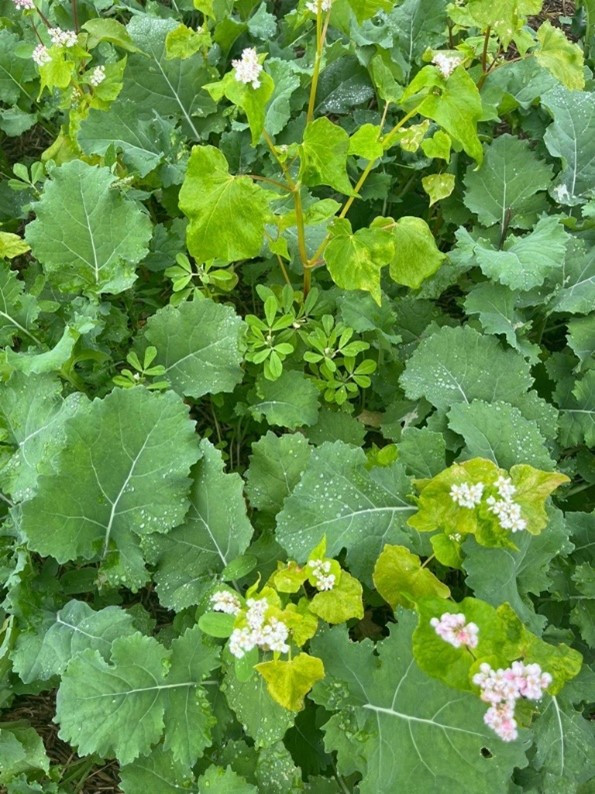Autumn weed control in oilseed rape with companion crops
In August, I wrote a blog about how to control grassweeds in oilseed rape ahead of establishing the crop. Now that we're further into the season with crops in the ground, it's a good time to revisit your weed control strategy and determine what actions are needed. In this blog I'll discuss the benefits and considerations around companion crops and how they fit into weed control.
Control strategies
Companion crops are now a more 'mainstream' strategy for supporting oilseed rape crops for multiple reasons, mostly because of the positive effect they have on establishment and reduction of cabbage stem flea beetle (CSFB) damage. They can also supply added nutrition to the OSR crop by capturing and releasing nitrogen and other key nutrients. Many plant species can be used, with companion crop mixes available with and without legumes. You can find more details on the Kings website.
When growing a companion crop there are two things to consider when using herbicides. The first is the effect of the herbicide on the weed and whether you can get sufficient control of that weed in the right timeframe. For example, cleavers can be controlled well in OSR but this needs to be done before spring. The second consideration is the effect of the herbicide on the companion crop species itself, as you may want to control the weed before you control the companion crop. By using herbicides, you can see from the table further down that you can control a lot of the companion crop species you are using. This really effects the timing of herbicides.
Companion crops, depending on their purpose and species, have different roles at different times and this needs taking into account ahead of thinking about weed control:
- CSFB damage prevention – The main advantages of this have usually been seen by the end of October (although some benefits have been seen from longer-term mixes, something which is being explored in our 3D Thinking trials). This means the first time some herbicides can be applied to the crop is after this period. This slight delay can result in there being potentially bigger weeds present, but with the addition of post-emergence broad-leaved weed control this should be less of a problem.
- Pigeon prevention – This depends on the species of companion crop but the idea is to have a structure above the OSR. This can be successful with very strong beans left as stalks but other species for this would need to be left until pigeons aren't a problem i.e. spring.
- Nitrogen fixing from annual species e.g. vetch –Annual legume species should be destroyed by spring to allow nitrogen to be released and used by the OSR crop in the growing season
- Low growing clovers for season-long nitrogen accumulation – These should ideally be in place after the OSR crop to allow nitrogen build up for the whole season so it's available to the crop that follows. It's important to make sure you avoid certain herbicides as the clovers are particularly sensitive to many of the OSR herbicide options.
Following on from the last point, the table below outlines what options are available for controlling weeds and companion crops:
The use of brassica companion crop species is recommended if you are growing Clearfield OSR. This is because weed control options are very limited; only the Clearfield herbicides will give good enough control of the brassicas to stop them being a problem in the OSR grain. Brassicas are also very competitive for nutrients, particularly nitrogen, so I suggest you control these species as early as possible e.g. the end of October.
Summary
If you have established companion crops alongside your oilseed rape crops, there are a number of factors to consider with regards to weed control. I hope the recommendations above are a useful resource when it comes to planning your approach to ensure the best results for your OSR crop.
If you have any questions about weed management or companion crops for OSR, please talk to your local Frontier contact or get in touch.
As a subscriber, you’ll receive email alerts each time a new blog is published so you can always stay updated with the latest advice and insights from our experts







Comments